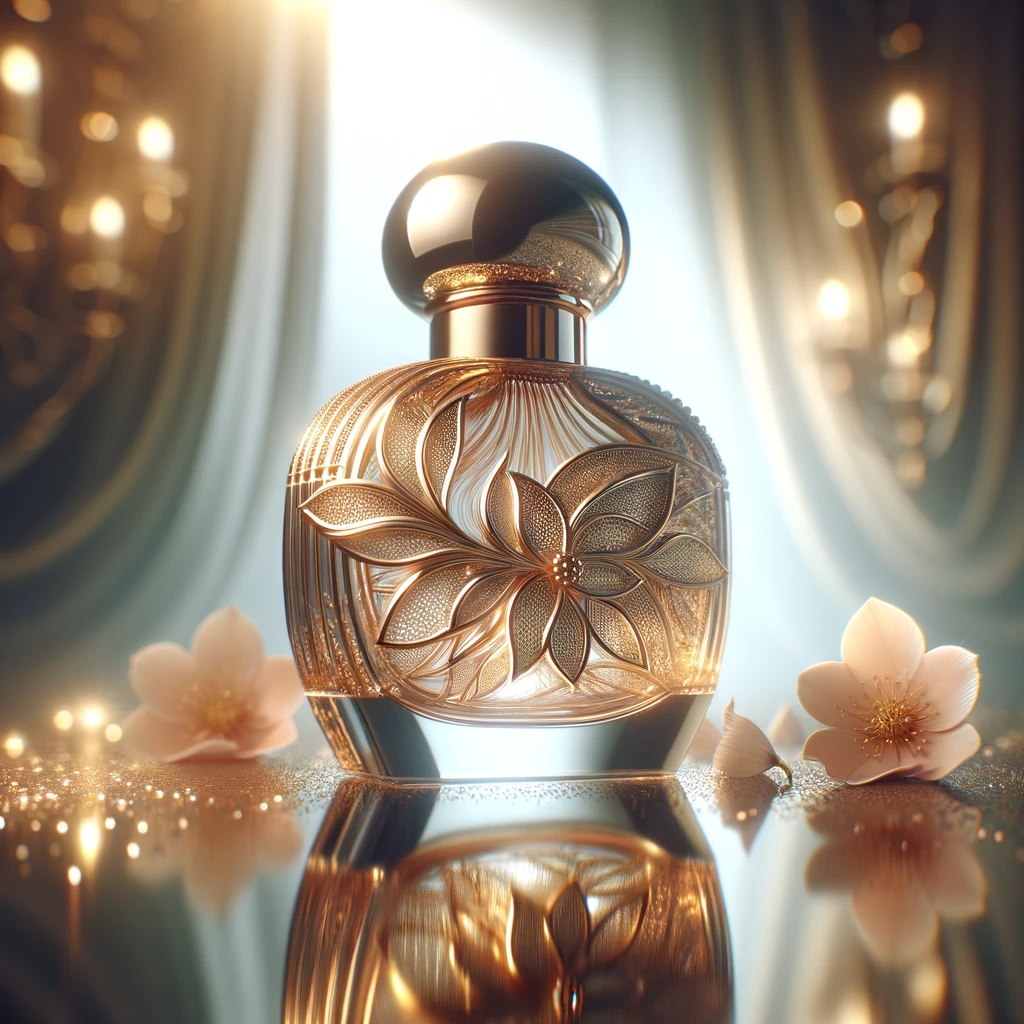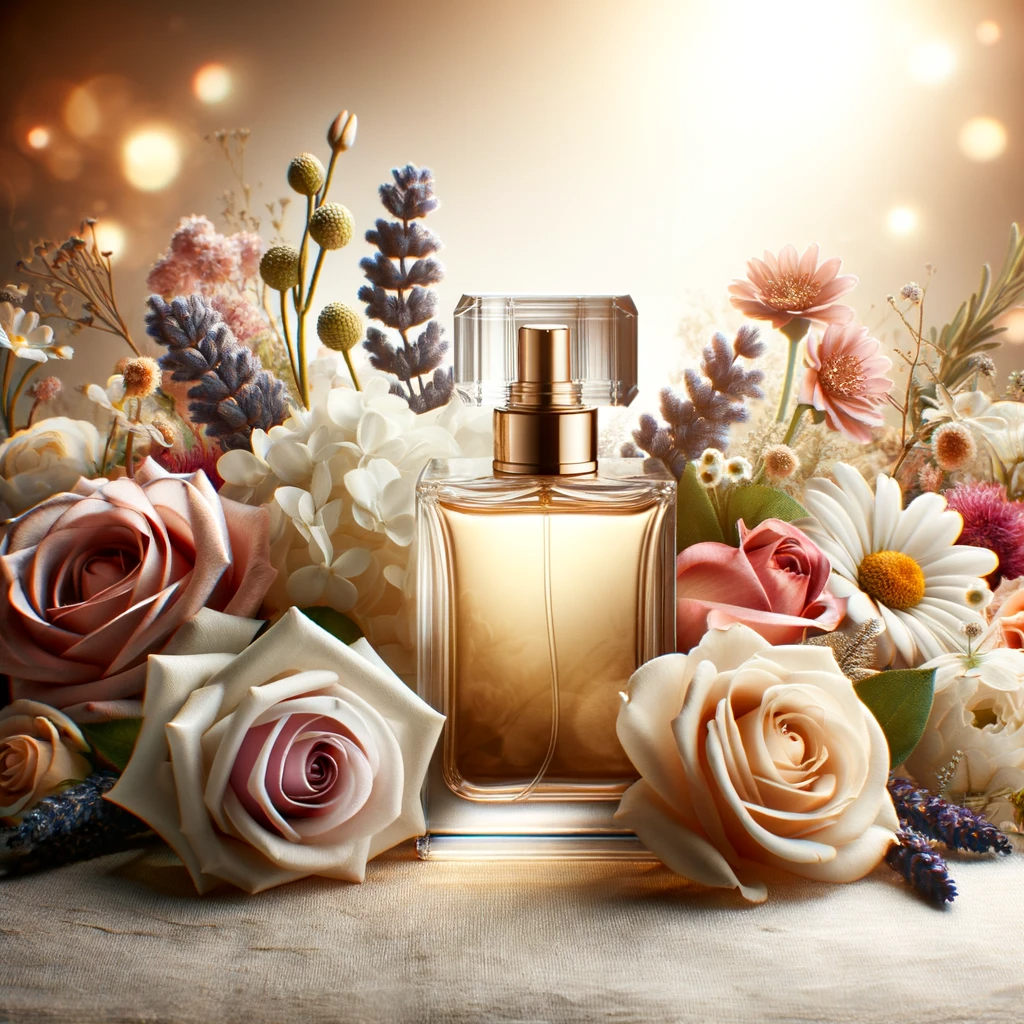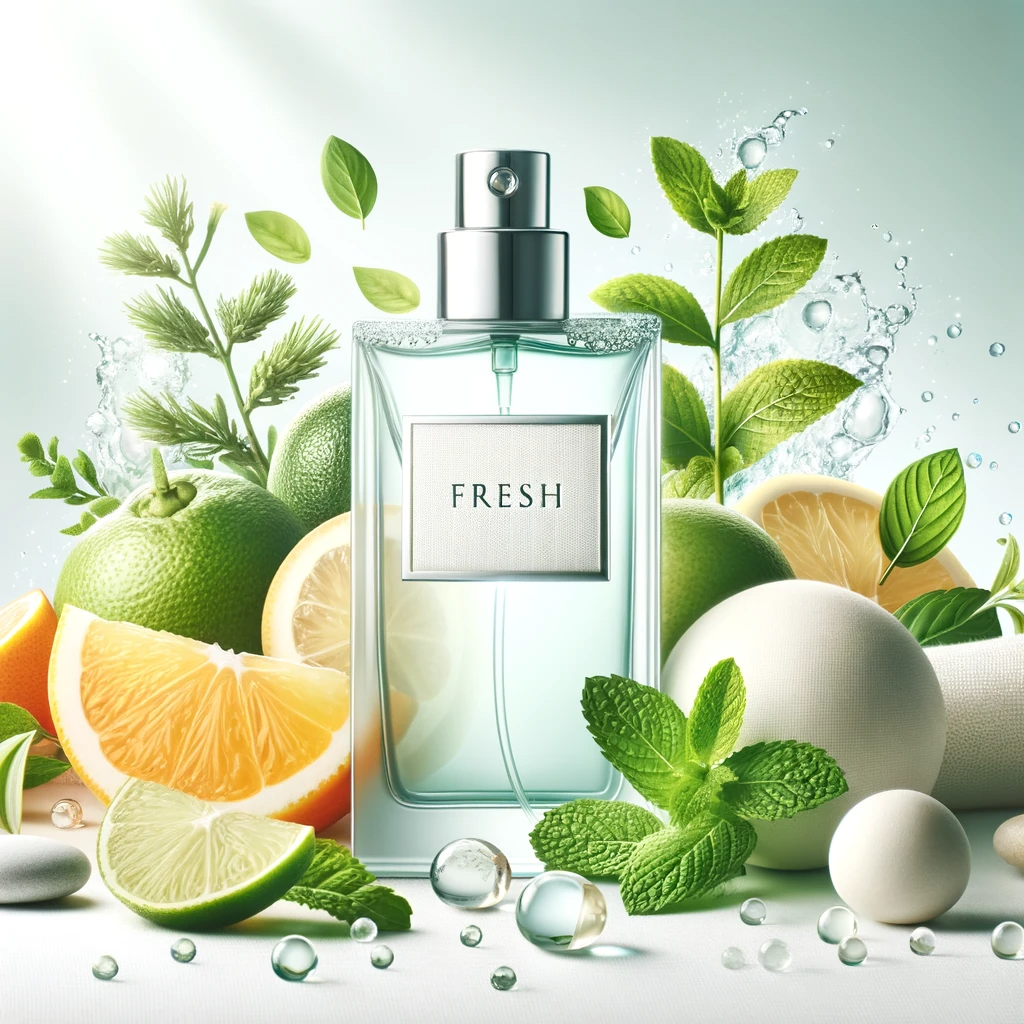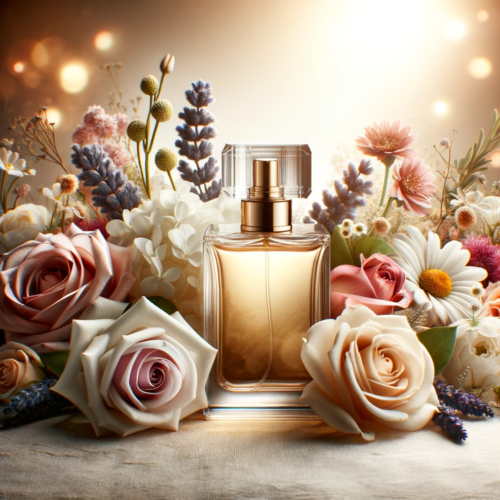Welcome to a sensory exploration that transcends mere fragrance – a journey into the heart and soul of perfumery. Perfumes are more than just a finishing touch to your outfit; they are a form of personal expression, a silent language that speaks volumes about your style, mood, and memories. As we navigate through this aromatic world, we’ll delve deep into the essence of various types of perfumes, uncover the mysteries of scent families, and provide insightful guidance on selecting the perfect fragrance for every chapter of your life. Whether you are a seasoned perfume aficionado or just starting your fragrance journey, this guide is designed to awaken your senses and enrich your understanding of this fascinating olfactory universe. Let us embark on this fragrant adventure together, where every scent tells a story, and every bottle holds a world to discover.



Understanding Fragrance Categories
In the enchanting world of perfumes, each fragrance tells its own story, and understanding these categories is like learning the language of scent. Let’s dive into the nuances of different types of perfumes, uncovering how each category has its unique charm and occasion.
Eau de Parfum (EDP)
The Narrator of Deep Stories
Eau de Parfum stands at the pinnacle of fragrance longevity and intensity. With a perfume oil concentration of around 15-20%, EDPs are like the narrators of deep, intricate stories. They whisper tales that unfold throughout the day, evolving from the first burst of top notes to the more enduring heart and base notes. These fragrances are crafted for longevity, staying with you, morphing, and melding with your body’s natural chemistry. They are the choice for those who want their fragrance to be a constant companion, narrating their day, from a morning meeting to an evening rendezvous. EDPs are often chosen for special occasions, but they can be just as fitting for everyday wear, depending on the scent’s character and the wearer’s preference.
Eau de Toilette (EDT)
The Epitome of Everyday Elegance
Eau de Toilette, with its 5-15% concentration of perfume oils, strikes a balance between subtlety and presence. Lighter than EDPs, EDTs are the epitome of everyday elegance. They are perfect for those who seek a fragrance that complements rather than commands. An EDT is like a brief, beautiful poem that captures a moment in time. It’s the fresh, uplifting spritz that awakens your senses in the morning and accompanies you through your day with a gentle, lingering presence. Ideal for office wear or a casual day out, these scents are versatile and usually more approachable in their olfactory profile.
Eau de Cologne (EDC)
The Zesty Quick-Step of Fragrances
Historically one of the oldest types of perfumes, Eau de Cologne typically contains about 2-4% perfume oils. EDCs are the zesty quick-step in the dance of fragrances. Light, refreshing, and often with a citrusy kick, they are the perfect pick-me-up on a warm day. Think of a splash of cool water on your face, the crispness of a freshly peeled orange, or the invigorating scent of just-cut grass. EDCs are unassuming yet memorable, ideal for moments when you desire a subtle scent that refreshes and revitalizes without overpowering.
Perfume Oils
The Intimate Embrace of Scent
For those who prefer a more intimate scent experience, perfume oils are a treasure trove. Concentrated and alcohol-free, these oils offer a deep, sensual connection to fragrance. They are the intimate embrace of scent, clinging close to the skin, revealing their layers slowly and sensually over time. Perfume oils are unique in that they interact intimately with the wearer’s skin chemistry, creating a truly personal scent. They are long-lasting, often leaving a gentle trace of fragrance that can mesmerize those who come close enough to discover it.
In understanding these categories, we start to appreciate the artistry and science behind perfume-making. Each type of perfume offers a different experience, a different way to tell your story through scent. Whether it’s the lasting embrace of an Eau de Parfum, the delicate touch of an Eau de Toilette, the refreshing zest of an Eau de Cologne, or the intimate whisper of a perfume oil, there’s a world in each fragrance waiting to be explored.
Designer vs. Niche Perfumes
Perfumery is an art form where creativity meets luxury, and understanding the distinction between designer and niche perfumes is key to exploring this fascinating world.
Designer Perfumes
Designer perfumes are synonymous with luxury fashion brands. They are the glamorous intersection where high fashion meets the world of fragrance. These perfumes are often characterized by their mass appeal, sophisticated marketing, and elegant packaging, reflecting the style and ethos of the fashion houses they represent.
Top 7 Designer Perfume Brands:
1. Chanel
Synonymous with elegance and sophistication, Chanel’s fragrances, like the iconic Chanel No. 5, are timeless classics, embodying the grace and luxury of the brand.
2. Dior
Dior perfumes combine refined luxury with bold creativity. Scents like J’adore and Miss Dior are renowned for their exquisite compositions and embody the essence of femininity.
3. Yves Saint Laurent (YSL)
Known for their daring and luxurious fragrances, YSL’s creations, such as Black Opium, are bold, modern, and seductive.
4. Gucci
Gucci perfumes, like Gucci Bloom and Gucci Guilty, offer a modern take on luxury, blending traditional ingredients with unexpected notes to create something truly unique.
5. Tom Ford
Offering a range of sophisticated and contemporary fragrances, Tom Ford’s perfumes, including Black Orchid, are known for their opulence and sensuality.
6. Giorgio Armani
Armani’s fragrances, such as Acqua di Gio and Armani Code, are renowned for their elegance and simplicity, capturing the essence of modern sophistication.
7. Versace
Bold and glamorous, Versace’s fragrances, like Bright Crystal and Eros, are as expressive and opulent as the brand’s fashion designs.
Niche Perfumes
Niche perfumes are the hidden gems of the fragrance world. Created by specialized, often independent, perfume houses, these scents are about artistic expression and uniqueness. They focus on the artistry of scent, using rare and high-quality ingredients to create fragrances that are distinct and often unconventional.
Top 7 Niche Perfume Brands:
1. Creed
With a heritage dating back to 1760, Creed offers a blend of classic and modern scents, famous for their quality and refinement, like Aventus and Green Irish Tweed.
2. Byredo
Known for its minimalist approach and unique scent profiles, Byredo’s fragrances, such as Gypsy Water and Bal d’Afrique, are modern, understated, and evocative.
3. Diptyque
Originally a candle maker, Diptyque’s perfumes, like Philosykos and Tam Dao, are renowned for their pure and sophisticated botanical scents.
4. Le Labo
Focusing on craftsmanship and personalization, Le Labo’s fragrances, including Santal 33 and Rose 31, are known for their unique and hand-crafted approach to perfumery.
5. Jo Malone London
Celebrated for their elegantly simple and typically British scents, Jo Malone’s fragrances, such as English Pear & Freesia, are designed to be layered and combined.
6. Amouage
Originating from the Sultanate of Oman, Amouage is known for its rich and exotic fragrances, blending Eastern and Western notes, exemplified in scents like Jubilation XXV and Reflection Man.
7. Frederic Malle
Dubbed as a “perfume publisher,” Frederic Malle gives renowned perfumers free rein to create their masterpieces, resulting in distinctive fragrances like Portrait of a Lady and Musc Ravageur.



Exploring Fragrance Families
Understanding the fragrance families is like learning the language of scents. Each family represents a particular group of aromas that share common characteristics. This knowledge not only enhances your appreciation of perfumes but also aids in selecting a fragrance that truly resonates with your personal style and mood. Let’s delve into these aromatic families:
Floral Fragrances
The Heart of Femininity
Floral fragrances are among the most popular and widely loved. They capture the essence of a blossoming garden, ranging from the delicate whisper of a single flower to the robust bouquet of varied blooms. Classic and romantic, floral scents like rose, jasmine, and lily can evoke the freshness of spring or the richness of an exotic garden. Perfumes like Marc Jacobs’ Daisy and Estée Lauder’s Beautiful are emblematic of this family’s timeless appeal.
Oriental Fragrances
Exotic and Mysterious
Oriental fragrances are known for their rich, sensual depth. They evoke images of spice-laden markets and warm, starry nights. Ingredients like vanilla, musk, and amber form the base of these warm and exotic scents, often combined with floral or fruity top notes to create a luxurious and enveloping experience. Opulent and heady, perfumes like Yves Saint Laurent’s Opium and Tom Ford’s Black Orchid are quintessential examples of this family.
Woody Fragrances
Earthy and Enigmatic
Woody fragrances are rooted in the earthiness of forests and wet soil, bringing a sense of grounding and natural beauty. They range from the dry, smoky aroma of vetiver and sandalwood to the soft, creamy quality of cedar. Woody scents often have a unisex appeal, offering a foundation for many iconic fragrances. Examples include Chanel’s Bleu and Creed’s Aventus, which exude strength and sophistication.
Fresh Fragrances
Crisp and Energizing
Fresh fragrances, also known as Citrus or Green fragrances, are like the first breath of spring – light, zesty, and invigorating. They typically feature notes of lemon, bergamot, and other citruses, sometimes blended with herbal or aquatic nuances. These scents are perfect for those who appreciate a clean, bright aroma. Perfumes like Dolce & Gabbana’s Light Blue and Acqua di Gio by Giorgio Armani epitomize this family’s refreshing nature.
Fougère Fragrances
A Harmonious Blend
Fougère, meaning ‘fern’ in French, is a genre that offers a harmonious blend of fresh, woody, and spicy notes. Classic fougères will often feature lavender, oakmoss, and coumarin, presenting a refined balance between crisp freshness and a cozy warmth. This family has traditionally skewed towards masculine fragrances but has seen a broader unisex appeal in recent years. An example of a quintessential fougère is Houbigant’s Fougère Royale.
Gourmand Fragrances
Delicious and Indulgent
Gourmand fragrances are a relatively new family, characterized by sweet, edible, and dessert-like qualities. Think of vanilla, chocolate, caramel, and coffee. These scents can be deeply comforting and enticing, often evoking memories of favorite foods and festivities. Thierry Mugler’s Angel, with its decadent chocolate and caramel notes, is a classic example that opened the doors to this unique fragrance category.
Leather Fragrances
Rich and Intense
Leather fragrances are distinguished by their smoky, rich, and animalistic notes. They often incorporate honey, tobacco, wood, and dry fruits to create a sense of old-world luxury. Leather scents can be bold and assertive, embodying a raw yet refined elegance. Tom Ford’s Tuscan Leather is a popular choice that beautifully encapsulates the sophisticated essence of this category.
Chypre Fragrances
Sophisticated and Timeless
The chypre family is known for its perfect balance of woody oakmoss, citrusy bergamot, and labdanum. These fragrances are considered the epitome of classic perfume-making, offering a rich and enduring scent journey. Chypre fragrances, like Guerlain’s Mitsouko, are celebrated for their complexity and depth, often associated with a mature and confident charm.
Choosing the Right Perfume
Selecting the perfect perfume is a personal journey, one that intertwines with your identity, lifestyle, and tastes. A fragrance can become your signature, an invisible part of your persona that others come to recognize you by. Here are some tips to guide you in choosing a fragrance that not only smells wonderful but also resonates with your individuality:
1. Understand Your Scent Preferences
Begin by exploring what types of scents you are naturally drawn to. Do floral notes lift your spirits, or do you prefer the earthy, grounding effect of woody scents? Maybe the zest of citrus invigorates you, or the mystery of oriental fragrances intrigues you. Reflect on the perfumes you’ve enjoyed in the past and identify the common notes or families they belong to. This self-awareness is the first step in finding a scent that truly speaks to you.
2. Consider Your Lifestyle and Personality
Your lifestyle and personality play a significant role in determining the right perfume. If you have an active, outdoor lifestyle, a fresh, light fragrance might suit you best. For those who frequent formal events or enjoy an elegant night out, a rich, sophisticated scent could be more appropriate. Think of your perfume as an olfactory representation of your personality and lifestyle.
3. Factor in the Occasion and Season
Different occasions and seasons may call for different fragrances. Lighter, fresher scents are typically more suitable for daytime and warmer months, while deeper, more intense fragrances tend to complement the cooler weather and evening events. A versatile fragrance wardrobe can allow you to choose scents that align with both the season and the occasion.
4. Test Before You Buy
Always test a perfume on your skin before making a purchase. Fragrances can smell differently on different people due to body chemistry. Apply a small amount on your wrist and wait for it to dry. This will give you a true sense of how the perfume reacts with your skin and how it evolves over time. Remember, a fragrance has top, middle, and base notes that reveal themselves sequentially.
5. Consider Longevity and Sillage
Longevity refers to how long a fragrance lasts on your skin, while sillage is about how far the scent travels (its trail). Think about how long you want the fragrance to last and how noticeable you want it to be. Eau de Parfums typically have greater longevity and sillage compared to Eau de Toilettes.
6. Don’t Rush the Process
Choosing a perfume should not be rushed. Sometimes, it takes time to truly appreciate a fragrance. If possible, get a sample to wear for a day or two. This will allow you to experience how the scent develops over time and how it feels to wear it throughout your daily activities.
7. Trust Your Instincts
Ultimately, the right perfume for you is one that you love and feel confident wearing. Trust your instincts. If a fragrance makes you feel good, then it’s the right choice. Your unique taste is what makes your perfume choice special.
Now, we’d love to hear from you! What’s your go-to perfume type/category/scent and why? Share your thoughts in the comments below. Your insights and choices might inspire someone else in their quest for the perfect perfume.
Happy perfume hunting and stay fabulous!


[…] Designer cologne: to top off his grooming routine, a designer cologne set from brands like Tom Ford or Creed adds a touch of sophistication and personal style. To know more about perfume types check out the blog Discovering the diverse world of perfumes: Types, Scents and more. […]